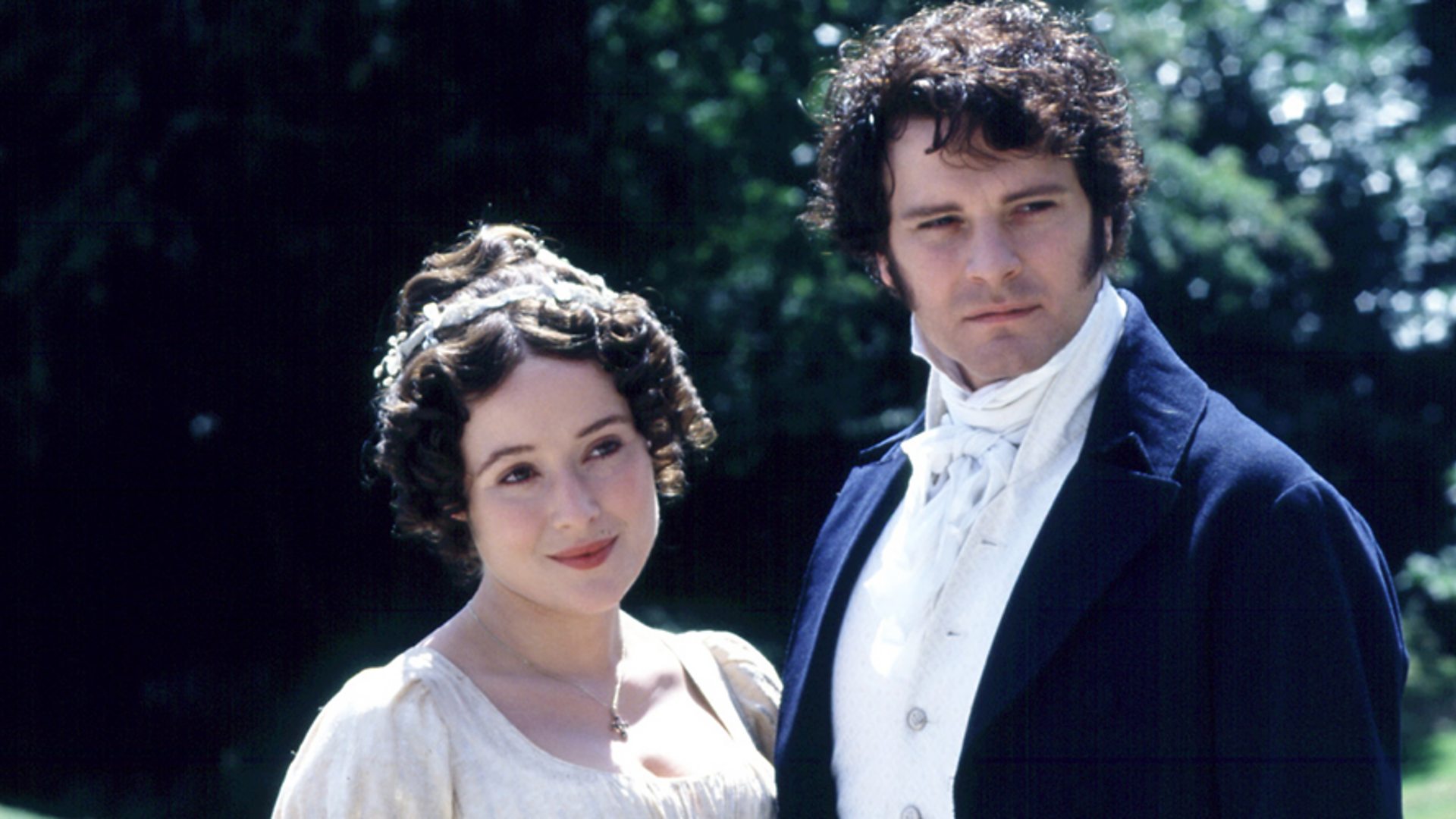Reflections On Reading “Pride & Prejudice” Nine Times In The Last Three Years

I’ve read some fine commentaries that helped me understand seemingly impenetrable works of classic literature, but the books I understand best are not the ones I’ve studied. Rather, they are the books I have read thirty times. If you really want to understand a classic, there’s really no substitute for rereading it three times every year for a decade.
If you can, though, don’t just reread classic texts. Reread them out loud. And don’t just reread them out loud, explain them as you go—commenting every few minutes on what’s just been said—to those who are encountering the book for the first time.
Last week, I completed my ninth complete reading (and twelfth teaching) of Pride and Prejudice in the last three years. Those who teach the same books many times a year, year after year, know that a person’s understanding of a book may plateau for many years, then suddenly change and deepen. The Divine Comedy might be nearly the same book for three or four reads in a row and then—upon recognizing that some seemingly banal trope was, in fact, a deeply significant theme—radically shift and seem entirely new again. Regardless, it was toward the end of last year’s teaching of Pride and Prejudice that I noticed Elizabeth was more like her mother than her father, despite the way Elizabeth thinks of herself. This year, once again teaching the book to three separate sections of sophomores, I had ample time and space to investigate this thesis.
I imagine attentive readers (on just a second read) will have noticed much of what follows; nonetheless, here is a series of disconnected observations on Austen’s best-beloved novel born of my last three or four reads.
One. I first noticed Elizabeth’s similarity with her mother during the Netherfield ball. The chapter opens with Elizabeth unwittingly accepting Darcy’s invitation to dance. She chides herself for accepting and resolves to be rude to him, but her friend Charlotte cautions her to “not to be a simpleton, and allow her fancy for Wickham to make her appear unpleasant in the eyes of a man ten times his consequence.” Nonetheless, Elizabeth is a pill to Darcy.
Later, however, Elizabeth’s mother speaks loudly over dinner about how her eldest daughter will soon be married to Mr. Bingley and Darcy hears. Elizabeth cautions her mother to speak lower, lest Mr. Darcy hear her boasting of something she knows nothing about, and her mother responds, “What is Mr. Darcy to me, pray, that I should be afraid of him? I am sure we owe him no such particular civility as to be obliged to say nothing HE may not like to hear.” The line could just have easily been Elizabeth’s response to Charlotte’s cautions.
Two. Kitty and Lydia go nuts for the red coats that are training near Hertfordshire, and Mrs. Bennet recalls “the time when I liked a red coat myself.” While Elizabeth disdains her sisters for their obsession with the officers, she also becomes obsessed with an officer, Mr. Wickham.
Like Mrs. Bennet, Elizabeth regularly gives herself special license to do the same things for which she condemns others. For all Mr. Bennet’s faults, this isn’t one of them.
Three. While she is often portrayed by an old lady in cinematic adaptations of the novel, Lady Catherine de Bourgh is probably in her mid to late forties. She has one daughter who is young enough that she still lives with “the woman who superintended her education,” and was brought up alongside Darcy, who is twenty-five. At seventy, Lady Catherine would be little more than a cliché. At forty-seven or so, she’s far more interesting.
Four. On a first or second read, Mr. Collins seems rather perfect for Mary Bennet, for they are both dry, droll finger-waggers. However, this is merely what Collins aims to project. In fact, he doesn’t like reading at all and looks for every reason to put down a book. When Collins claims he “never [reads] novels,” the reader (and the Bennet girls) is led to believe he reads nothing but theology. But no, when Lydia interrupts his reading of Fordyce’s sermons he immediately puts the book down and will not take it up again, despite the rest of the family protesting he should. It’s not shocking that he doesn’t like to read, though, for “the greatest part of his life [was] spent under the guidance of an illiterate and miserly father.”
A day later, “Mr. Collins had followed [Mr. Bennet to the library] after breakfast; and there he would continue, nominally engaged with one of the largest folios in the collection, but really talking to Mr. Bennet, with little cessation, of his house and garden.”
Furthermore, unlike Mary, Collins is not a moralist, but adopts the views of the room or the richest person in the room. Mr. Bennet picks up on this and, when responding to the letter wherein Collins’ rebukes Elizabeth for thinking of marrying Darcy, writes that Collins should, “Console Lady Catherine as well as you can. But, if I were you, I would stand by the nephew. He has more to give.”
Given that Collins morality follows the highest bidder, is not interested in intellectual things, and talks entirely too much, it’s not so much Mary that is perfect for him, but Lydia.
Five. The reader is inclined to side with Mr. Bennet on a first read, but Mrs. Bennet is the better parent. She is annoying, shallow, and hypocritical, but unlike her husband, she actually works hard to take care of her children. If Mr. Bennet were to drop dead of a heart attack, the Bennet women would lose Longbourn and probably be forced to live in the worst neighborhood in London and get factory jobs. This is simply what it looked like for a well-established family to “come down in the world,” as often happened in the eighteenth and nineteenth century. A good deal of Mrs. Bennet’s annoying, shallow, and hypocritical qualities emerge in her relentless efforts to get her daughters married so that they are cared for if and when her husband dies.
Six. Mrs. Bennet is obsessed with money, especially with how much money her daughters marry into. In the front half of the novel, Elizabeth presents herself as “a romantic” who regards marriage as a deeply personal spiritual project. Nonetheless, at the end of the novel, when Jane asks Elizabeth when she first began to love Mr. Darcy, Elizabeth responds, “I believe I must date it from my first seeing his beautiful grounds at Pemberley.” While this claim is followed with, “Another entreaty [from Jane] that she would be serious, however, produced the desired effect; and she soon satisfied Jane by her solemn assurances of attachment,” there’s a real sense in which Elizabeth is only half-joking. Rather quickly after her arrival at Pemberley, she thinks to herself that “to be mistress of Pemberley might be something!” This thought precedes any mention of feelings of love for Darcy.
What’s more, when Jane asks Elizabeth when she first began to love Mr. Darcy, she pretends to dodge the question with “a joke,” but never ultimately tells her sister when it began. She only satisfies her that her attachment to Darcy is now real. I’m not saying that a real and genuine love can’t begin with an attraction to an amazing house, but it does kinda sorta seem like Elizabeth’s romantic attraction to Darcy begins with Pemberley.
Seven. Oddly enough, the longest speech (359 words) in the entire novel belongs to Lydia. While inane, the speech is nonetheless important, for it centers on Lydia’s chief preoccupation in life, which is also her greatest fault: an obsession with having “fun.” The word “fun” occurs three times in this speech.
Of the eight times the word “fun” appears in the novel, all eight come from Lydia. None come from other characters or in the narration.
Eight. While I adore the novel, with each additional read, I find less and less to like about Elizabeth Bennet in the front half. Until she receives Mr. Darcy’s letter, she’s a wittier, snobbier version of Kitty or Lydia. Lydia is wildly indiscreet, but so is Elizabeth when she trash talks Darcy in front of Wickham right after they meet. Lydia is a flirt, but Elizabeth’s overtures to Wickham are so overt they earn her a caution from her Aunt Gardiner. Lydia loves a good time, but Elizabeth has a “disposition which delighted in anything ridiculous.”
If the reader allows Elizabeth to truly repent of her hypocrisy and willful self-deception late in the book, we have to take that self-deception and hypocrisy seriously in the beginning of the book.

Joshua Gibbs
Joshua Gibbs is the director of The Classical Teaching Institute at The Ambrose School. He is the author of Something They Will Not Forget and Love What Lasts. He is the creator of Proverbial and the host of In the Trenches, a podcast for teachers. In addition to lecturing and consulting, he also teaches classic literature through GibbsClassical.com.










3 thoughts on “Reflections On Reading “Pride & Prejudice” Nine Times In The Last Three Years”
Of all the Pride and Prejudice movies I only like the one with Kiera Knightly as Elizabeth. She made me understand her “love to laugh” personality. None of the others feel right to me. But, I hate the ending of that one so we stop playing it right before that last scene.
I admit that this year, after many years of walking through this book with 10th grade students, I too came away with different takes than I had before. And I think you are spot on with Elizabeth and Mrs. Bennet. I do like that both Elizabeth and Darcy repent near the end. Though how much of that is true change, I cannot tell. I am not sure if Jane Austen cares quite so much about that. Though perhaps I am wrong. Thanks for this article!
Lydia is ridiculous. Elizabeth has a “sense of the ridiculous” and is amused by it. It takes a skill of detection to find the absurdity in a situation. I believe she inherited from her father the “quickness” that Austen gave Mr. Bennet. The point is significant. One can be intelligent but naive and inexperienced. Lydia has nothing to aid her in recognizing, and in turn, addressing her silliness. Elizabeth, on the other hand, allows intellectual reasoning to right her wrongs.